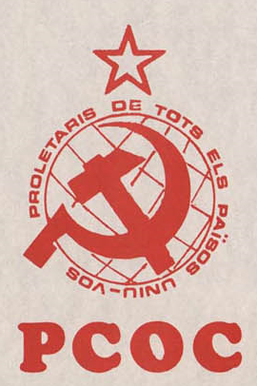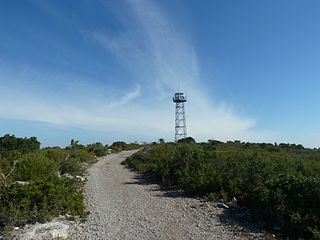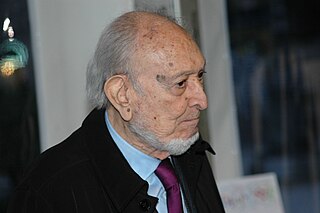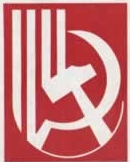
The Socialists' Party of Catalonia is a social-democratic political party in Catalonia, Spain, resulting from the merger of three parties: the Socialist Party of Catalonia–Regrouping, led by Josep Pallach i Carolà, the Socialist Party of Catalonia–Congress, and the Catalan Federation of the PSOE. It is the Catalan instance of the Spanish Socialist Workers' Party (PSOE), and its Aranese section is Unity of Aran. The party had also been allied with federalist and republican political platform Citizens for Change until the 2010 election. PSC–PSOE has its power base in the Barcelona metropolitan area and the comarques of Tarragonès, Montsià, and Val d'Aran.

Vallès Occidental is a comarca (county) in the Barcelona region in Catalonia (Spain). It has two capitals, Sabadell and Terrassa. Along with Vallès Oriental, it forms the historical Vallès region.

Altorricón or El Torricó is a municipality located in the comarca of La Litera/La Llitera in the province of Huesca, Aragon, Spain. With an extension of 32.03 km2, the municipal district of Altorricón lies on the southern part of La Llitera, limiting with El Segrià (Almacelles). The district is surrounded north and south by Tamarite de Litera. The municipality contains the town of Altorricón and the uninhabited towns of Cuquet, Montanera and Lo Tossal as well as the old church of San Bartolomé de Altorricón.

Communist Workers' Party of Catalonia is a communist party in Catalonia. The party was founded in 1973 as a split from Partit Socialista Unificat de Catalunya as the Catalan branch of the Spanish Communist Workers' Party (PCOE), and was legalized on 28 October 1977. In 2000, it became a part of the Communist Party of the Peoples of Spain.

The Commonwealth of Catalonia was a deliberative assembly made up of the councillors of the four provinces of Catalonia. Promoted in its final stages of gestation by the Regionalist League of Catalonia, it was strongly endorsed by municipal referendum in October 1913.
Marxist–Leninist Front of the Peoples of Spain is a communist party in Spain. The group emerged in 1987, as a split from the Communist Party of the Peoples of Spain. The group was initially known as the Leninist Front of the Communist Party of the Peoples of Spain. The founding president of the group was Francisco Expósito Prieto. It took the name F(M-L)PE in 1992. In April 1993 the Leninist Organization, a group based in Llobregat, merged into F(M-L)PE. In 1995 it was registered with the Spanish Ministry of Interior, with an office in La Roca del Vallès. The group published Nuestra Lucha. Leaders of the group have included Lorenzo Ruiz, Gregorio Fernández, Jesús Prades, Antonio de Miguel Quiles and Evangelino Fernández.
The Workers' Front of Catalonia was a clandestine political movement in Catalonia, Spain, formed in 1961, and active during the Spanish State of caudillo Francisco Franco. It was the continuation of the Popular Democratic Association of Catalonia, one created by university students inspired by liberation theology and the Cuban revolution.

Isidre Molas i Batllori is a Catalan politician and historian, who has served as the fifth President of the Socialists' Party of Catalonia since 19 July 2008. He has been a Senator from Barcelona since 5 April 2000.

Ports de Tortosa-Beseit, also known as Ports de Beseit, or simply as Els Ports or Lo Port by locals, is a limestone mountain massif located at the north-eastern end of the Sistema Ibérico, a complex system of mountain ranges and massifs in the centre of the Iberian Peninsula. Its highest point is Mont Caro, 1,441 m. Rivers such as the Matarranya and the Cenia have their source in these mountains.
Mola del Guerxet is a mountain of Catalonia, Spain. It has an elevation of 1,121 metres above sea level.

Puig de la Mola is a mountain in the Garraf Massif, Catalonia, Spain. It has an elevation of 533 metres above sea level.

Serra de l'Espina is a limestone mountain chain located at the north-eastern end of the Iberian System. It connects the Ports de Tortosa-Beseit mountain massif with the Catalan Pre-Coastal Range.

Sant Llorenç del Munt is a largely rocky mountain massif in central Catalonia, Spain. The highest summit, where the Monestir de Sant Llorenç del Munt is located, has an elevation of 1,104.2 metres (3,623 ft) above sea level and is known as La Mola. Montcau 1,056.8 metres (3,467 ft) is another important peak of the massif. On the massif, there is a protected area under the name Parc Natural de Sant Llorenç del Munt i l'Obac.
Prades Mountains, also known as Muntanyes de Prades, is a large calcareous mountain massif straddling the comarcas of Alt Camp, Baix Camp, Conca de Barberà, Garrigues and Priorat, in Catalonia, Spain. They are a Site of Community Importance.

Colldejou is a municipality in the comarca of Baix Camp, in the province of Tarragona, Catalonia, Spain.

Sant Llorenç del Munt is a Benedictine monastery in Matadepera, Vallès Occidental, Catalonia, Spain. It is situated on top of La Mola, the summit of the rocky mountain massif, Sant Llorenç del Munt, within Parc Natural de Sant Llorenç del Munt i l'Obac. It was declared a Bien de Interés Cultural landmark in 1931.

Josep Maria Castellet Díaz de Cossío, also known as José María Castellet, was a Spanish Catalan writer, poet, literacy critic, publisher and editor.

Unity for Socialism was an electoral coalition in Catalonia, Spain, contesting the 1980 Catalan parliament election. The coalition represented the main groups of the non-parliamentary left in Catalonia at the time. It was constituted by the Workers Party of Catalonia (PTC), Communist Organization of Spain, Revolutionary Communist League (LCR) and the Communist Movement of Catalonia (MCC). Manuel Gracia Luño was the top candidate in the Barcelona constituency, whilst Jordi Creixans headed the Girona list, Francisco Javier Clavería (PTC) headed the Lleida list and José Semente Moya (MCC) was the top candidate in Tarragona.

The Communist Collective of Catalonia was a political organization in Catalonia. It was formed in 1977 as a split from the Communist Organization of Spain. Leaders of CCC included Joan Oms, Antoni Montserrat, Maria Olivares and Consol Casals. CCC published Quaderns de Debat.
Communist Workers' Party of Catalonia is a communist party in Catalonia. The party was founded in 1973 as a split from Partit Socialista Unificat de Catalunya as the Catalan branch of the Spanish Communist Workers' Party (PCOE), and was legalized on 28 October 1977. In 2000, it became a part of the Communist Party of the Peoples of Spain.















